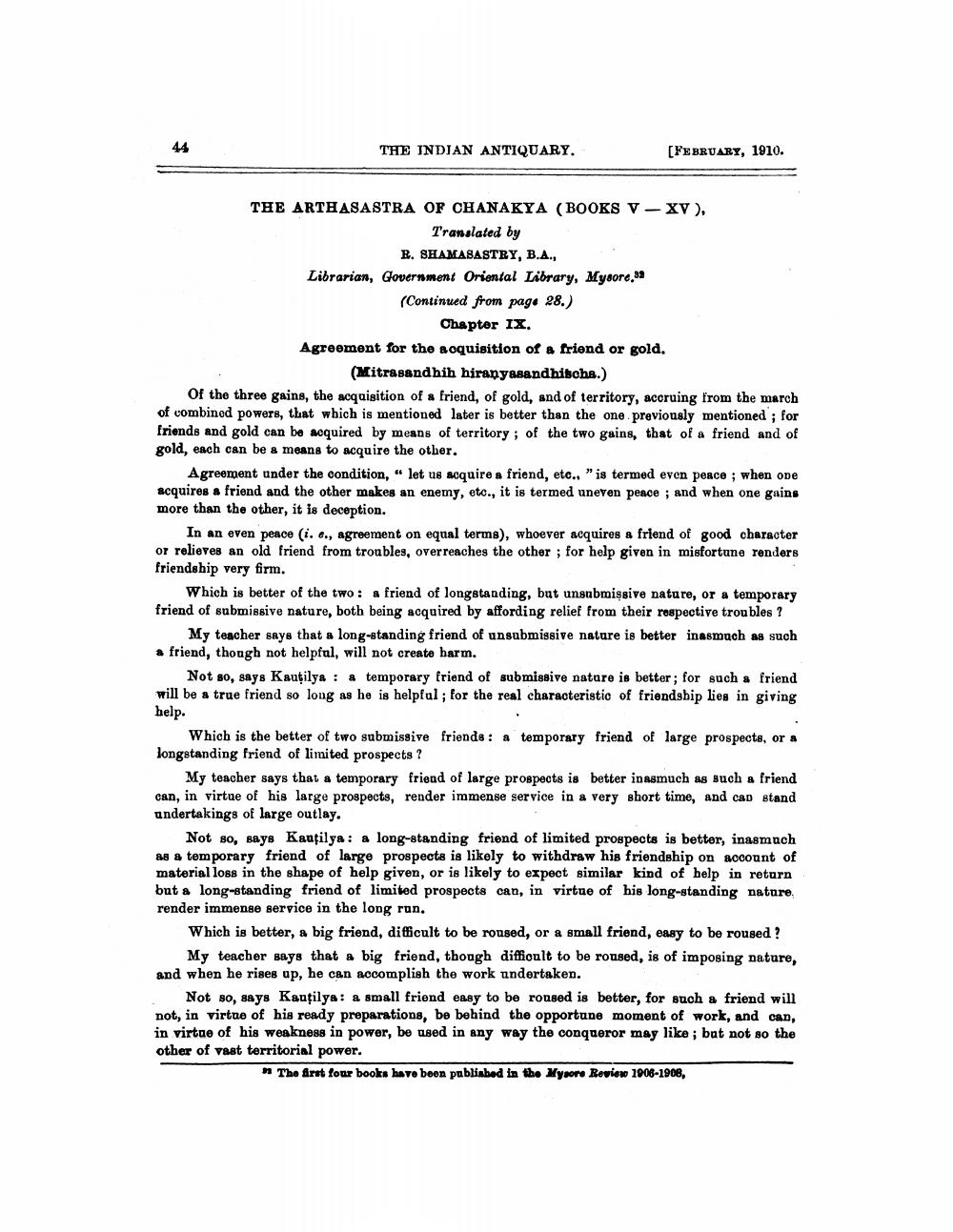________________
THE INDIAN ANTIQUARY.
[FEBRUARY, 1910.
THE ARTH ASASTRA OF CHANAKYA (BOOKS V-XV).
Translated by
. SHAMASASTRY, B.A., Librarian, Government Oriental Library, Mysore,sa
(Continued from page 28.)
Chapter IX. Agreement for the aoquisition of a friend or gold,
(Mitrasandhih hiran yasandhibcha.) Of the three gains, the acquisition of a friend, of gold, and of territory, accruing from the march of combinod powers, that which is mentioned later is better than the one previously mentioned; for friends and gold can be acquired by means of territory; of the two gains, that of a friend and of gold, each can be a means to acquire the other.
Agreement under the condition, let us acquire a friend, etc., "is termed even peace; when ode acquires a friend and the other makes an enemy, etc., it is termed uneven peace ; and when one gains more than the other, it is deception.
In an even peace (i, e., agreement on equal terms), whoever acquires a friend of good character or relieves an old friend from troubles, overreaches the other; for help given in misfortune renders friendship very firm.
Which is better of the two : a friend of longstanding, but unsubmişsive nature, or a temporary friend of submissive nature, both being acquired by affording relief from their respective troubles ?
My teacher says that a long-standing friend of unsubmissive nature is better inasmuch as such a friend, though not helpful, will not create harm.
Not so, says Kautilya : & temporary friend of submissive nature is better; for such a friend will be a true friend so long as he is helpful; for the real characteristic of friendship lies in giving help.
Which is the better of two submissive friends : a temporary friend of large prospects, or a longstanding friend of limited prospects ?
My teacher says that a temporary friend of large prospects is better inasmuch as such a friend can, in virtue of his large prospects, render immense service in a very short time, and can stand undertakings of large outlay.
Not so, says Kanțilya: a long-standing friend of limited prospects is better, inasmach as a temporary friend of large prospects is likely to withdraw his friendship on account of material lobs in the shape of help given, or is likely to expect similar kind of help in return but a long-standing friend of limited prospects can, in virtue of his long-standing nature render immense service in the long run.
Which is better, a big friend, difficult to be roused, or a small friend, easy to be roused ?
My teacher says that a big friend, though diffioult to be roused, is of imposing nature, and when he rises up, he can accomplish the work undertaken.
Not so, says Kautilya: a small friend easy to be ronged is better, for such a friend will not, in virtue of his ready preparations, be behind the opportune moment of work, and can, in virtue of his weakness in power, be used in any way the conqueror may like; but not so the other of vast territorial power.
The first four books have been published in the Mysore Review 1906-1908,




